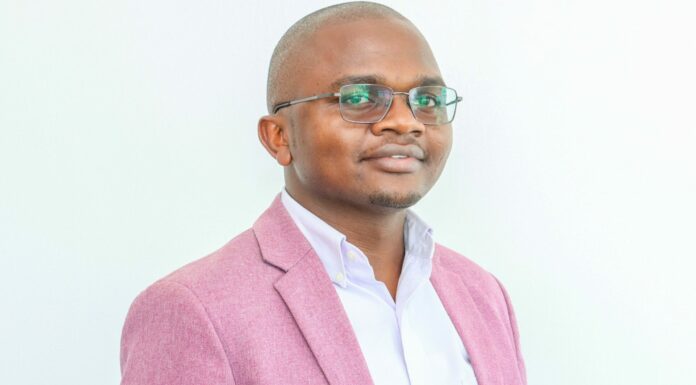Stephen Mbugua served as the Safaricom Investments Co-operative Finance Manager (SIC). SIC is an investment co-operative that pursues joint investments for its members, through real estate investments, marketable securities and private equity.
There are several things on my plate in my role as the Finance Manager. I am responsible for the overall financial affairs of the Society including financial reporting, cash flow management and developing strategies based on financial research.
I also guide the CEO and the Central Management Committee in making sound long-term and short-term financial business decisions. The biggest challenge of this role is to ensure that our members get the highest possible returns from their investments.
I have eleven years of progressive experience in the finance field. Before I moved to SIC, I started my career in finance as an accountant in 2012 with Equity Bank. I then progressed to a senior accountant position in 2014 after moving to the newly set up subsidiary, Finserve Africa Limited, running the Equitel brand. After two years, I moved to Equity Group Foundation as an Assistant Manager in 2016 helping in the set-up of the Equity Afia Clinics from scratch. I have also had stints in sales and credit jobs earlier in my career.
Second hand Honda Fit now at Sh. 1.6mn, Premio Sh. 2.7mn, Harrier Sh. 4mn
I once purchased some property but had no title deed. It was supported by a share certificate. Though I never lost my investment, there was no clear path of how the title deed was to be processed. We had to join hands with other buyers to push for the vital document to be processed, a move that cost us a lot of time and money.
Some buyers were not cooperative and hence the whole process was quite stressful. Though the acquisition price was a bit lower, in hindsight, it would have been much better and cheaper to buy property with clean documents. It would have saved me money and time.
I would say my greatest moment was in February 2023 during our Annual General Meeting (AGM). In the history of the society, members had to wait for about a day or two to be paid their dividends and the amounts to be disbursed.
This year, we did it differently and made payouts immediately after the motion was passed. The joy and feedback that we received thereafter from investors was extremely satisfying.
If you were to start all over again, career-wise, I would invest more in myself and further build my skillset. After graduating from the university, I should have spent more time diversifying my skills by taking more courses. Taking up new courses and learning new skills become harder with time as more work and family responsibilities kick in.
I would also have taken advantage of training opportunities offered by employers. This would help me rise on the career ladder faster.
The temptation to spend is very high and the chances of consuming all our earning is real. Over time, I have learnt that the best way to save is to establish my monthly expenses and document them, then align this with my earnings. This way I have a rough idea of how much I can save.
To avoid the temptations of spending what I have set aside for savings, I always recommend that the money be deducted from the source and channeled to my preferred savings account. My other method is to understand whether my preferred savings plan earns me a return.
I find Saccos to work very well for this as they not only offer dividends at the end of the year but also provide the opportunity to access loan facilities and a variety of products.
Trying to save in a bank account in current times is the most difficult thing. With the ease of access through mobile banking and cards, you can find yourself using up all your savings. Much as these avenues bring much-needed convenience, it is a threat to our hard-earned savings.
I have never seen anyone claim to have enough money. Even those we consider rich still look for ways to make more money. The secret to money is to make sure it is growing no matter how small, otherwise no matter how much it is it will soon be depleted.
Living within your means is also an important aspect. Never spend more than you earn. Avoid borrowing to consume. Only borrow to invest and the return on the investment should always be higher than the cost of borrowing.









